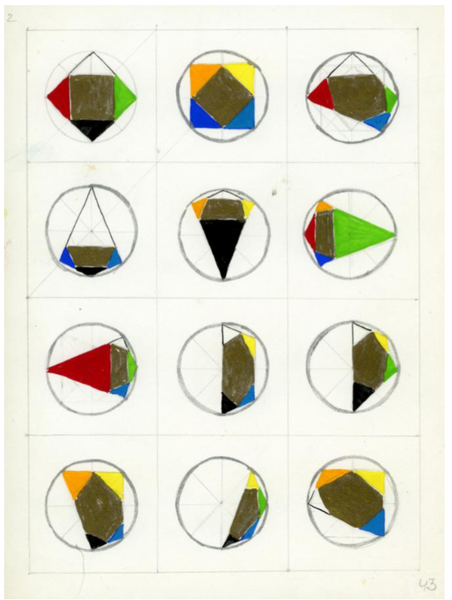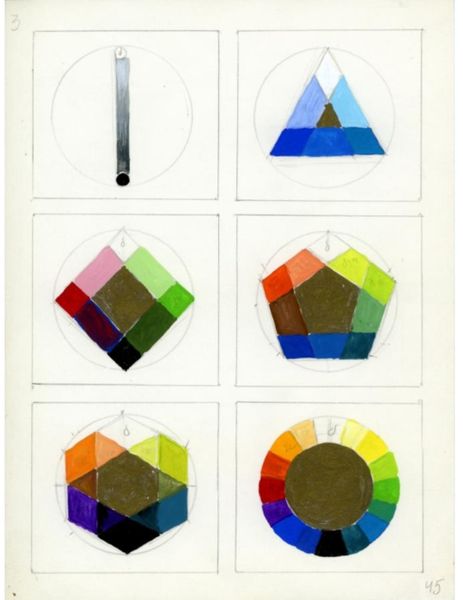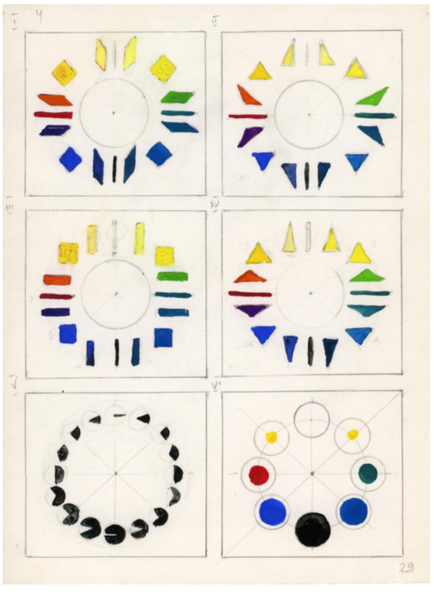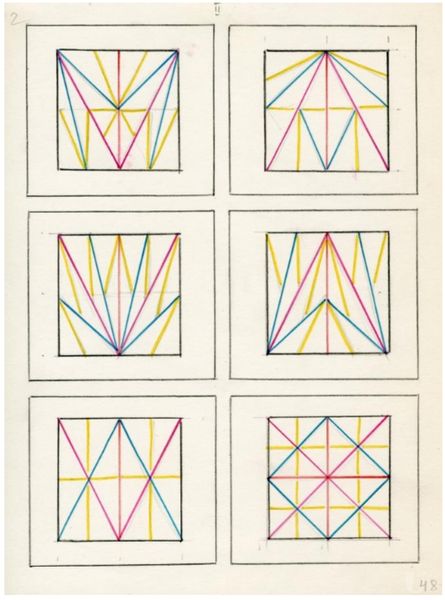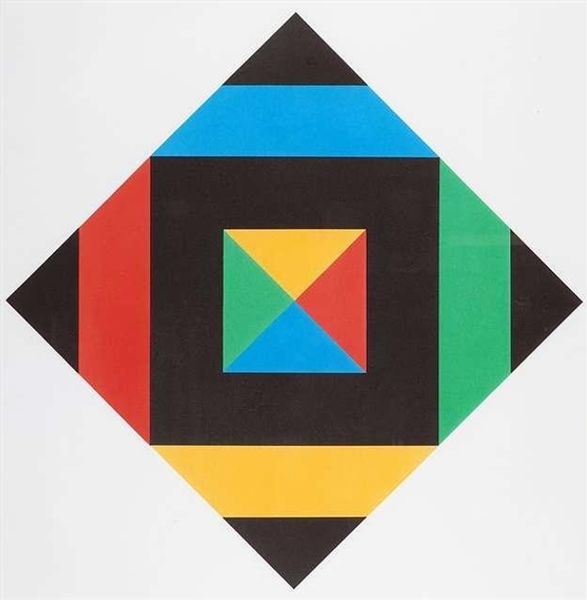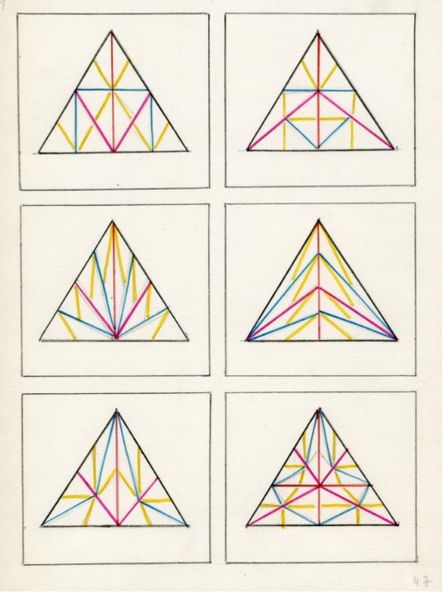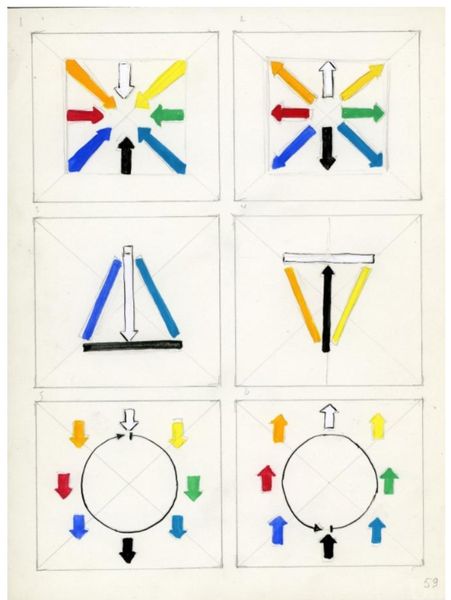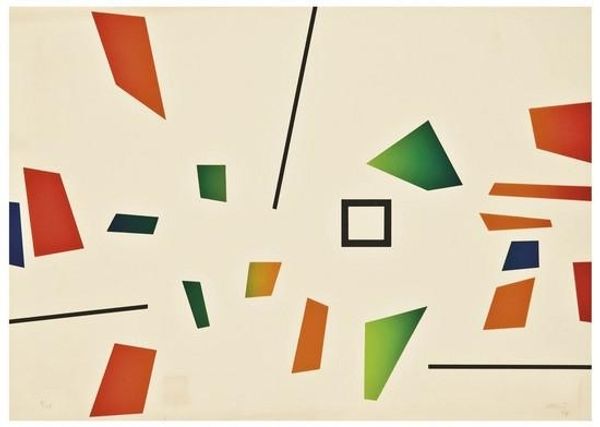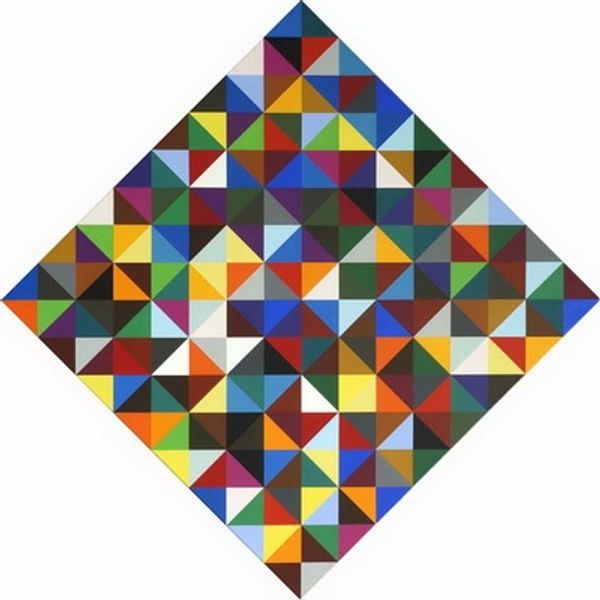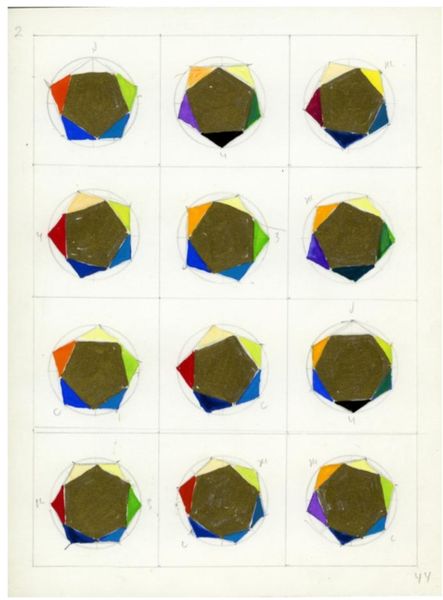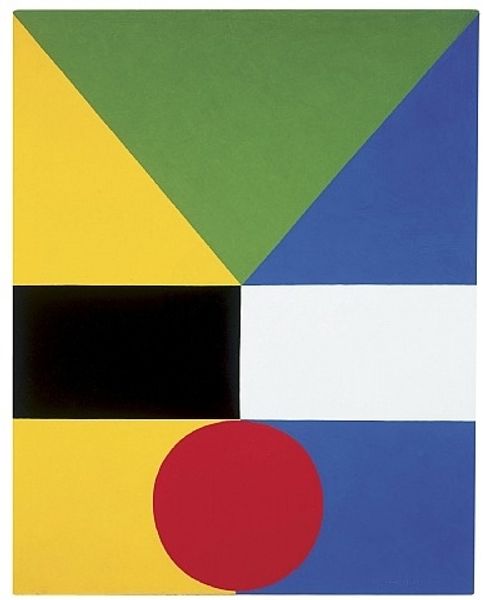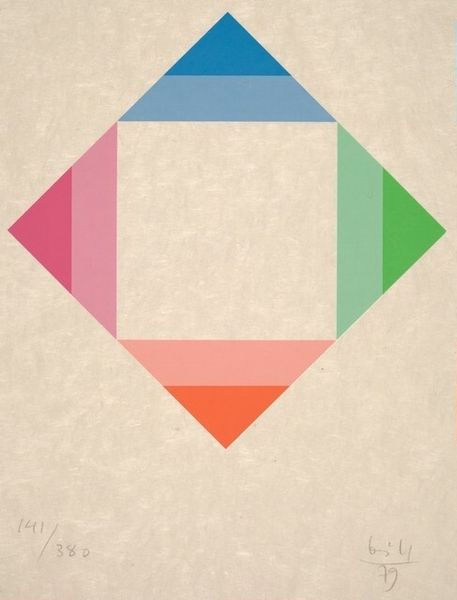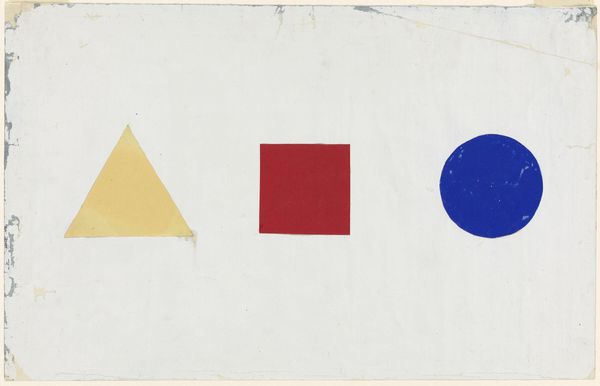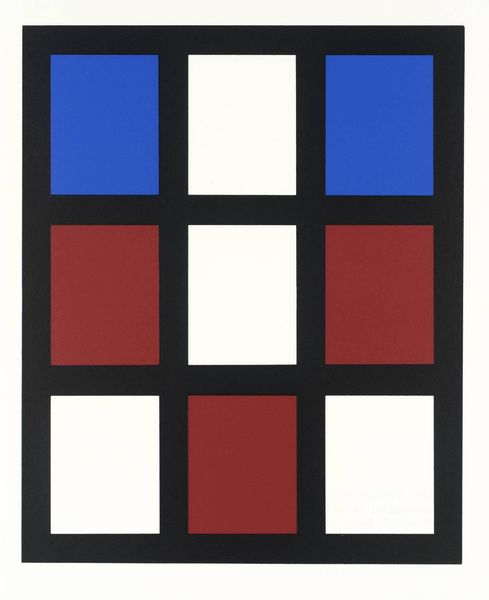
#
geometric pattern
#
minimal pattern
#
organic pattern
#
repetition of pattern
#
vertical pattern
#
pattern repetition
#
layered pattern
#
reptilian
#
combined pattern
#
nature closeup
Copyright: Valerii Lamakh,Fair Use
Editor: So, here we have Valerii Lamakh's "The Fourth 'Book of Schemes'. Album #1, the Third Folder," from 1978. It looks like watercolor and pencil on paper. My first thought is how ordered and almost scientific it feels, but with these vibrant colours bursting from each shape. What's your take? What do you see when you look at this? Curator: Well, given that Lamakh was working in Soviet Ukraine, I immediately look to the conditions of artistic production. The "schemes" in the title suggest a system, almost an engineer's approach. We might consider this work a record of process, less about individual expression and more about the arrangement and interplay of form. Editor: A record of process… that’s interesting. Does that push back against what was typically considered fine art at the time? Curator: Precisely! The materiality – humble paper and watercolors – combined with the systematic, almost repetitive arrangement, challenges traditional hierarchies. He's elevating the act of making, the investigation of geometric relationships, over any narrative or symbolic content. Notice how the grid itself, a tool for organizing the page, remains visible. It reveals the underpinnings of the whole system. Editor: So, he's showing us the nuts and bolts, so to speak. Is he commenting on labor through the visible, repetitive process? Curator: Absolutely. And by doing so, he asks us to reconsider what constitutes "art" in a society often obsessed with the final, polished product. What is gained, or lost, by prioritizing the raw components of creation? Editor: I hadn't thought about it that way. Seeing it as a commentary on artistic labor within its socio-political context…it gives it so much more depth. Thank you! Curator: Indeed. It forces us to examine our own assumptions about value and the processes that underpin creative endeavors.
Comments
No comments
Be the first to comment and join the conversation on the ultimate creative platform.
